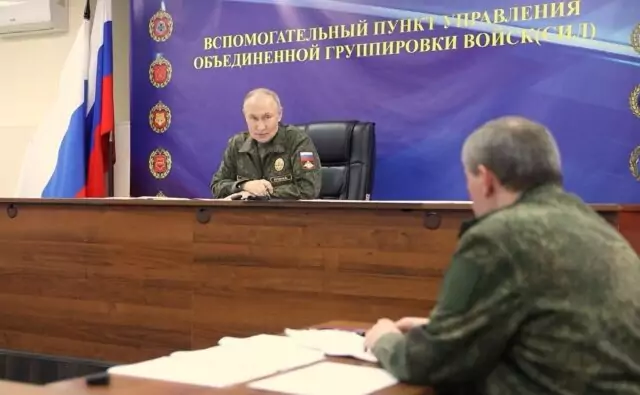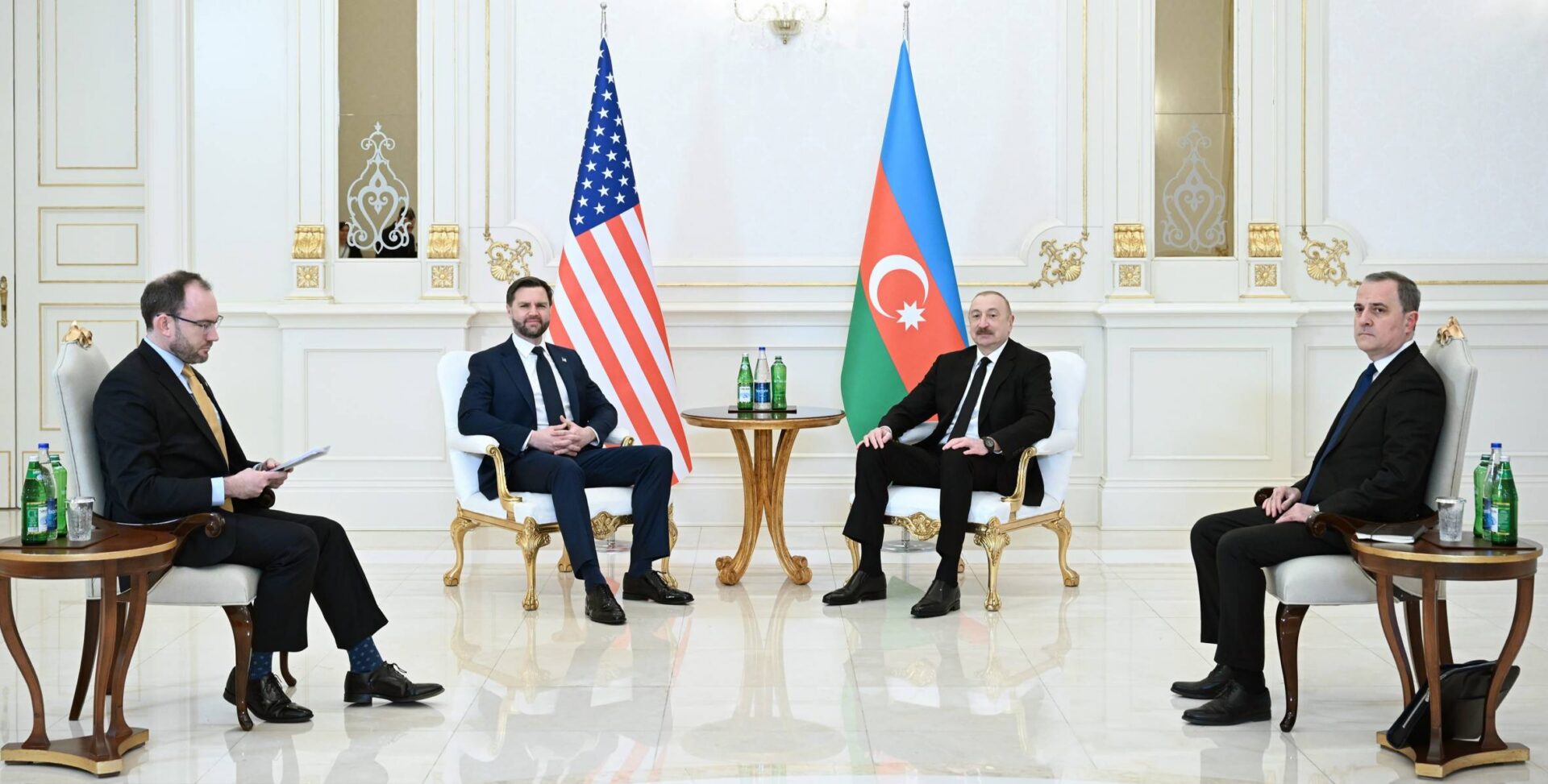
Putin Returns to Brinksmanship After New U.S. Sanctions
Putin Returns to Brinksmanship After New U.S. Sanctions
Executive Summary:
- U.S. President Donald Trump abruptly canceled a planned summit with Russian President Vladimir Putin in Budapest and imposed sanctions on Russia for the first time since taking office, reportedly due to Putin’s rejection of a ceasefire in Ukraine.
- The U.S. sanctions target energy giants Rosneft and Lukoil, causing their market values to drop, as the measures threaten export revenues since key partners, such as India and Türkiye, will have more leverage when purchasing Russian oil.
- With hopes for a personal rapport with Trump fading, Putin has returned to nuclear brinkmanship. On October 26, he announced that the nuclear-propelled Burevestnik cruise missile was ready for deployment.
Expectations in Russia were soaring about the planned meeting between Russian President Vladimir Putin and U.S. President Donald Trump in Budapest. The Moscow stock exchange registered a strong rally, and even jingoist pundits started to speculate about the prospects of a peace deal that would seal Ukraine’s defeat (TopWar.ru, October 24). Trump’s decision to cancel the summit, describing it as a “waste of time,” and to impose new sanctions on Russia was extremely shocking to many in Moscow (RBC, October 23). Mainstream commentators who were eager to praise Trump’s readiness to listen to Putin’s long harangue on Russia’s grievances and Ukraine’s insignificance now refer to the mercurial character of decision-making in Washington, D.C. (Kommersant, October 23). Russian commentators ascribe the turnaround in the U.S. policy to the malign influence of the war-mongering Europeans, but rarely mention the incompatibility between Trump’s stated desire for a ceasefire and Putin’s explicit rejection of any pause in combat operations (Forbes.ru, October 24).
The abrupt breakdown of the high-level dialogue came as an unpleasant surprise to Putin. He had hoped to strengthen the positive momentum from the telephone conversation with Trump by meeting in person in Russia-friendly Budapest (Nezavisimaya gazeta; see EDM, October 20). He sought to downplay the effect of Trump’s decision and was cautious not to disparage the new sanctions, but instead claimed they would have limited influence on Russia’s economic situation (Kommersant, October 23). He also dispatched the CEO of the Russian Direct Investment Fund (RDIF), Kirill Dmitriev, to Washington, D.C., who Putin likely expects to have a better rapport with U.S. Special Envoy Steve Witkoff than Russian Foreign Minister Sergei Lavrov had with U.S. Secretary of State Marco Rubio (The Moscow Times, October 25). Dmitriev announced Russia’s desire to conclude the so-called “special military operation,” but the economic incentive he tried to invent does not overcome the obstacle of Russia’s continued rejection of a ceasefire (RBC, October 25).
Trump has opted to target the first set of sanctions on two Russian energy majors—Rosneft and Lukoil, and their subsidiaries. Russian commentators are trying to camouflage the damage by warning of an inevitable spike in oil prices and the subsequent consequences for the U.S. economy (Izvestiya, October 25). The most consequential effect, however, is the potential significant decline in Russia’s export revenues, as intermediaries who take on the risks of dealing with the “shadow fleet” of Russian tankers may demand larger discounts (The Bell, October 25). The market value of Rosneft and Lukoil has plummeted, as new sanctions will add to their losses from sustained Ukrainian drone attacks on refineries in Russia and from mysterious fires at refineries in Hungary and Romania that still accept Russian oil (The Moscow Times, October 24; TopWar.ru, October 25). Türkiye has significantly reduced import of Russian oil and diesel, and Indian companies are currently revising their cost-benefit calculations as well as risk assessments related to the until-recently profitable purchases, particularly from Rosneft, which owns a 49 percent stake in the Nayara refinery (Re: Russia; Neftegaz.ru, October 23).
Trump is planning to discuss Russian oil exports with many Asian importers during his trip to Malaysia, Japan, and South Korea, and in particular during his much-anticipated meeting with General Secretary of the Chinese Communist Party Xi Jinping (RBC; Radio Svoboda, October 25). Despite all the political talk about pivoting to Asia, Russia is due to be represented by low-level officials at the summits of the Association of the Southeast Asian Nations (ASEAN) in Kuala Lumpur, Malaysia, and the Asia-Pacific Economic Cooperation Forum (APEC) in Seoul, South Korea (RIAC, October 21; Rossiiskaya gazeta, October 25). Moscow’s attention remains focused on the confrontation with Europe. The 19th package of sanctions approved by the European Union—in combination with the new U.S. sanctions—is worrying for Moscow, even if Dmitriev tries to dismiss them as merely an attempt to undercut the Russia–U.S. dialogue (Vedomosti, October 23; RIA Novosti, October 24). The postponement of the EU decision on utilizing the frozen financial assets of the Russian Central Bank for funding support programs for Ukraine was jeered as proof of deep discord in the enemy camp (Carnegie Politika, October 10; Meduza, October 23).
The prospect of a surge in weapons supplies to Ukraine paid for by frozen Russian assets remains disconcerting for many Russian commentators (Nezavisimaya gazeta, October 23). Ukrainian President Volodymyr Zelenskyy’s visit to Sweden on October 22 saw an agreement on delivering the F-16 and a few Mirage 2000-5F fighters, and as many as 100 (and maybe even 150) SAAB JAS-39 Gripen-E fighters to the Ukrainian Air Force, which operates a variety of platforms, and discussion for the provisional allocation of frozen assets (Radio Svoboda, October 24; Izvestiya, October 25).
Russia’s main military concerns are about Ukrainian strikes with long-range missiles. Ukraine is continuing to increase these missiles’ effectiveness, as demonstrated by the recent hit on a military plant in Bryansk by a Storm Shadow missile on October 21 (Meduza, October 21; Nash Bryansk, October 24). Putin may assume that the issue of the U.S. supply of the BGM-109 Tomahawk missiles is suspended alongside the Budapest summit, but still felt it necessary to assert that the response to missile attacks would be staggering (News.ru, October 24). While visiting the military command center in Moscow on October 26, he announced that the nuclear-propelled Burevestnik cruise missile—which has undergone several failed tests—was ready for deployment (TASS; Kommersant, October 26).
This new exercise in nuclear brinkmanship, from which Putin had refrained for about half a year, indicates that his hopes for establishing a personal rapport with Trump are sinking. He may still seek opportunities to exploit tensions in U.S.–European relations, but the intensity of communications between Washington, D.C., and major European capitals is so high that Russian diplomatic intrigues and “hybrid” operations are constantly and effectively countered. The lingering suspicion that Zelenskyy can outmaneuver him is likely particularly irritating for the Russian autocrat. It appears as if it matters little to Putin that the Burevestnik is an old Soviet design, discarded as ineffectual, and that it makes even less military sense than the Oreshnik intermediate-range missile launched last November. He likely hopes to regain Trump’s priority attention, and nuclear weapons are his diplomatic means of last resort.


